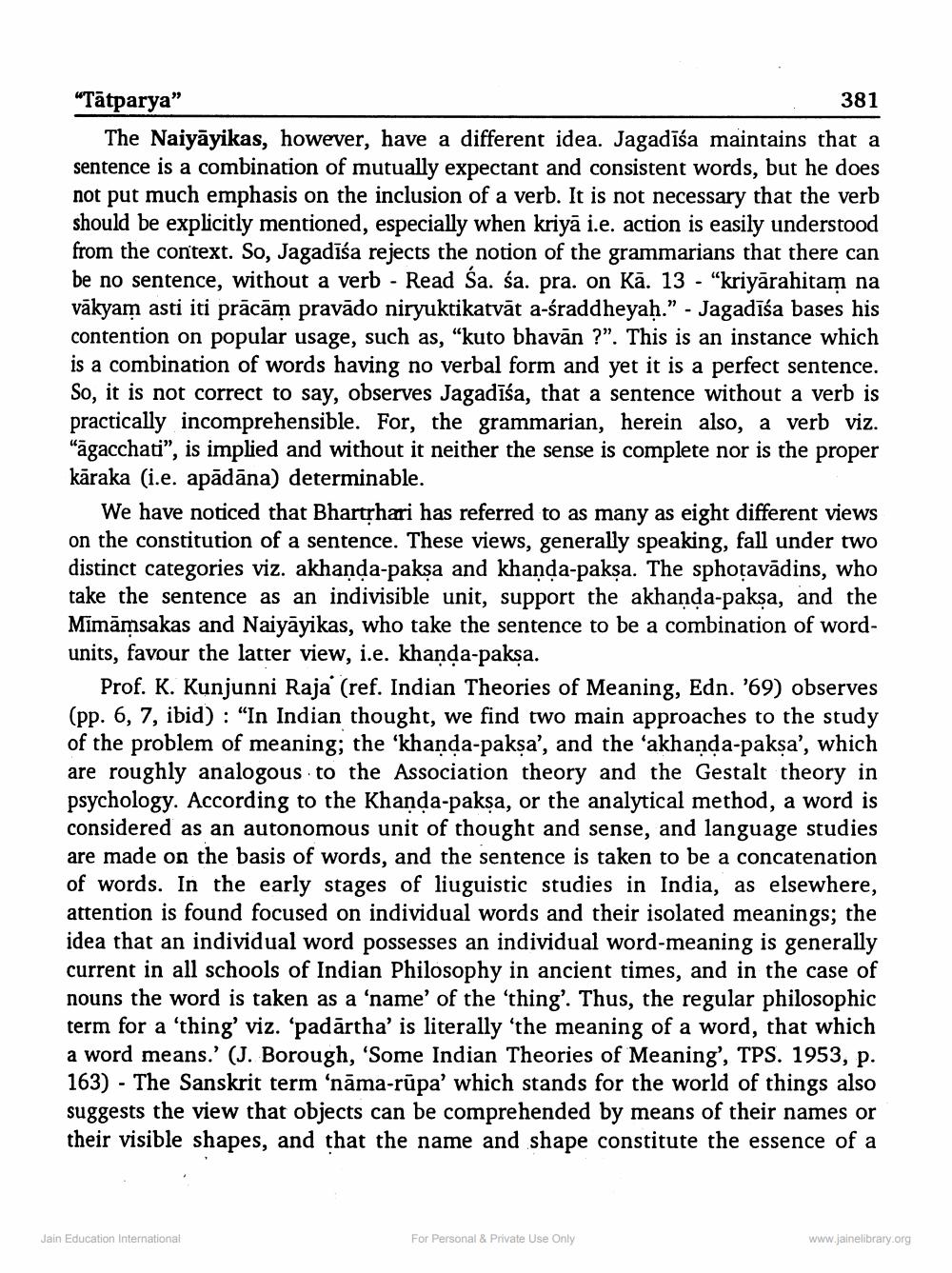________________
"Tātparya"
381 The Naiyāyikas, however, have a different idea. Jagadīša maintains that a sentence is a combination of mutually expectant and consistent words, but he does not put much emphasis on the inclusion of a verb. It is not necessary that the verb should be explicitly mentioned, especially when kriyā i.e. action is easily understood from the context. So, Jagadīša rejects the notion of the grammarians that there can be no sentence, without a verb - Read Sa. śa. pra. on Kā. 13 - "kriyārahitam na vākyam asti iti prācām pravādo niryuktikatvāt a-śraddheyah." - Jagadīša bases his contention on popular usage, such as, "kuto bhavan ?". This is an instance which is a combination of words having no verbal form and yet it is a perfect sentence. So, it is not correct to say, observes Jagadīša, that a sentence without a verb is
ractically incomprehensible. For, the grammarian, herein also, a verb viz. "agacchati", is implied and without it neither the sense is complete nor is the proper kāraka (i.e. apādāna) determinable.
We have noticed that Bharthari has referred to as many as eight different views on the constitution of a sentence. These views, generally speaking, fall under two distinct categories viz. akhanda-paksa and khanda-paksa. The sphotavādins, who take the sentence as an indivisible unit, support the akhanda-paksa, and the Mimāmsakas and Naiyāyikas, who take the sentence to be a combination of wordunits, favour the latter view, i.e. khanda-paksa.
Prof. K. Kunjunni Raja (ref. Indian Theories of Meaning, Edn. '69) observes (pp. 6, 7, ibid) : “In Indian thought, we find two main approaches to the study of the problem of meaning; the 'khanda-paksa', and the ‘akhanda-paksa', which are roughly analogous to the Association theory and the Gestalt theory in psychology. According to the Khanda-pakşa, or the analytical method, a word is considered as an autonomous unit of thought and sense, and language studies are made on the basis of words, and the sentence is taken to be a concatenation of words. In the early stages of liuguistic studies in India, as elsewhere, attention is found focused on individual words and their isolated meanings; the idea that an individual word possesses an individual word-meaning is generally current in all schools of Indian Philosophy in ancient times, and in the case of nouns the word is taken as a 'name' of the 'thing'. Thus, the regular philosophic term for a 'thing' viz. 'padārtha' is literally 'the meaning of a word, that which a word means.' (J. Borough, 'Some Indian Theories of Meaning', TPS. 1953, p. 163) - The Sanskrit term 'nāma-rūpa' which stands for the world of things also suggests the view that objects can be comprehended by means of their names or their visible shapes, and that the name and shape constitute the essence of a
Jain Education International
For Personal & Private Use Only
www.jainelibrary.org




